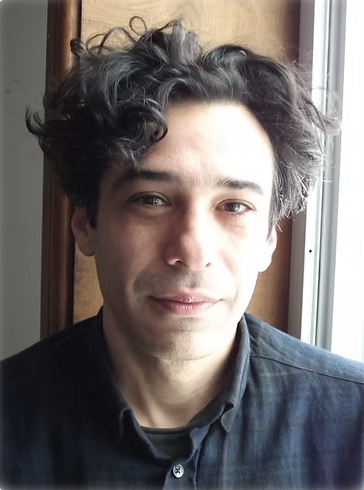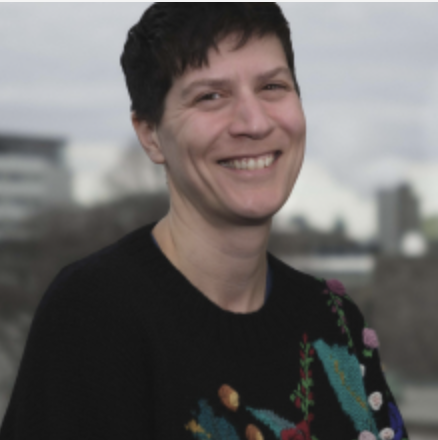What does it mean to designate an atrocity as a tragedy? How do the echoes of an ancient religious and theatrical ritual insinuate themselves into our language of memorialization? Porte Parole’s Projet Polytechnique foregrounds this question by looking at the aftermath of the Polytechnique massacre over thirty years later.
When we call an outcome “a tragedy”, we often subtly suggest that it was unpreventable. Perhaps our understanding of tragedy as inevitable emerges from famous tragedies like Sophocles’ Oedipus Tyrannus, where the play unfolds around Oedipus discovering that he has already fulfilled his seemingly long-avoided fate, to kill his father and marry his mother. So “the tragedy” has already happened, but the play’s affective force comes, as Aristotle says, from Oedipus’s “discovery” (anagnorisis) of that tragedy and his own role within it. But Aristotle makes a clear distinction between tragedies like that of Oedipus, who was “ignorant”, and those like that of Medea, who knew full well what she was doing when she responds to her husband Jason’s infidelity and betrayal by killing his new wife as well as their own children. So while tragedy sometimes emerges from discovering a perceived inevitability, it can also find its affective catharsis in the audacious, even “evil” actions of its protagonists, mortals and immortals alike who seek vengeance against perceived wrongs.
This creates a deep ambivalence in navigating “tragic” feelings around a real-life massacre: do we risk removing agency altogether, only grieving the inevitable outcome? Or do we elevate the perpetrator to tragically heroic heights?
Therin lies one of the challenges and provocations at the heart of Porte Parole’s project. Can we say the massacre at Polytechnique was like a tragedy? Can we stage it as such? As documentary theatre, Porte Parole strikes a fascinating balance. Unlike Denis Villeneuve’s film Polytechnique, which represents the shooting from the perspective of two students, Porte Parole’s play is set today, dramatizing conflicting attempts to find meaning in the historic massacre.
“J’ai vraiment l’impression d’être dans une tragédie grecque!” says one of the survivors, to which the character of the co-creator, Marie-Joanne, says to the other co-creator, Jean-Marc, “Elle parle de tragédie grecque pis on fait un show de théâtre!” But as the piece unfolds, the play’s creators explore a series of ongoing, related issues, asking: Is the “tragedy” our still-present culture of misogyny, now given new life in on-line forums? Is it the North American epidemic of mass school shootings, enabled by an entrenched guns-rights lobby?
The play offers no answers to these burning questions, instead giving polyphonous perspectives that reflect Greek tragedy’s often aporetic chorus. The chorus, like the protagonists Marie-Joanne and Jean-Marc and their interlocutors, serve as audience avatars, commentators outside the tragedy’s main actions, who worry out loud, “may this never happen to me” just as regularly as they say, “this has happened before”, or, more poignantly, “this will happen again.” Yet amidst the numerous perspectives, one character stands in relief. The Imam Hassan Guillet, who, after the Quebec mosque shooting, claimed of the shooter Alexandre Bissonnette, “Avant de mettre des balles dans la tête de ses victimes, quelqu’un a mis dans sa tête des idées plus dangereuses que ses balles. Avant d’être un tueur, il a été une victime.” In a gesture of profound humanism, Guillet troubles the idea of the killer’s agency, echoing the logic of some of the Greek tragedies.
Marie-Joanne then asks if Jean-Marc could ever see Marc Lepine as te 15th victim, Jean-Marc replies that he could up to 17h10, the time when Lepine committed the massacre, not after. Then, asks Maire-Joanne, what about the incels who memorialize Lapine as a hero, who have not yet committed any violence?
A final agon takes place between Jean Marc and a seventeen-year-old incel who speaks of Lepine as a saint, (who he blesses with a “heil Saint Lepine”) as one who fought on behalf of all incels. Unlike classic agons, Jean Marc fights with himself to feel compassion for the tormented seventeen-year-old, comforting him about his inciting trauma—his mother’s treatment of his father during their divorce when he was eight years old. The scene leaves the audience uneasy, considering the seventeen-year-olds’ possible future actions and how much or little Jean Marc’s interventions may help – in other words, what may or may not be tragically inevitable.
The play begins and ends with powerful forms of memorialization, inspiring a sense of awe at how the violence of mass shootings has spread. At the beginning, Jean Marc yearly posts the names of the victims of Polytechnique on Twitter, while the show ends with projections of the hundreds of victims of mass shootings since. A final postscript links the epigrammatic, often pessimistic, choral endings of Greek tragedies with our desperation at realizing the scope of mass shootings. It reads, “Pense bête: Nombre de jours disponibles dans une année sans tueries. Une phrase de conclusion sur la tragédie grecque.”
Joseph Shragge

His text for Fuck You! You Fucking Perv!, in collaboration with Leslie Baker, won the 2017 META for Best Independent Production after its run at Théâtre La Licorne, translated by Fanny Britt. His play Bar Kapra the Squirrel Hunter was workshopped at the Montreal Fringe Festival with director Alison Darcy (nominated for Best New Text) and produced in 2016 with director Andreas Apergis (META nominated for Outstanding New Text). His Ubu-esque puppet-epic The Heretics of Bohemia was produced at the Segal Centre. Working with director Andreas Apergis and Lynn Kozak, he adapted Euripides’ Medea (Winner Mecca Best Production), and The Bacchae (Winner META Best Production), and recently Sophocles’ Oedipus all of which were performed at the Centaur Theatre’s Brave New Looks initiative. His adaptation of Roswitha’s of Gandersheim’s Sapientia, based on a literal translation from the Latin by Lynn Kozak, was developed by Mia van Leeuwen as object theatre and presented at festivals in Western Canada. His work has appeared in Matrix Magazine, the Capilano Review and other publications. He co-wrote and co-directed YEV with Alison Darcy.
Lynn Kozak

Lynn Kozak works on archaic and classical ancient Greek literature, as well as its receptions, translations, and comparisons with contemporary texts. After their monograph, Experiencing Hektor: Character in the Iliad, released in 2016 with Bloomsbury Academic (Experiencing Hektor open-access) compared the Iliad‘s serial poetics to those of contemporary North American narrative television, they have also continued to work in television and media studies.
Recent publications (since 2018) include the co-edited volume The Classics in Modernist Translation with Miranda Hickman, and articles on H.D.’s translations of Greek tragic choruses (with Miranda Hickman), Homeric fandom in Greek tragedy, the politics of FOX’s The Exorcist, how Lucifer‘s supernatural protagonists subvert procedural expectations, reconsidering parallel narrative strategies between ancient epic and contemporary North American serial television, Stranger Things’ (Netflix) “binge-able narrative” (with Martin Zeller-Jacques), the reception of Achilles and Patroklos in NBC’s Hannibal, a broader exploration of queer receptions of #Patrochilles with Bruce King, and an exploration of formal features in the shows of Robert and Michelle King across distribution platforms. Forthcoming work include articles and book chapters on Homeric translation, performance, and dramaturgy, the vortex in Homer, Iliad 17, and representations of American police violence in supernatural procedurals Lucifer and Evil.
Prof. Kozak is the organiser of the annual McGill Classics Play, a member of the Quebec Drama Federation and the Freestanding Room Artists’ Collective, as well as the co-founder and co-artistic director (with Carina de Klerk) of Oimoi Productions, providing many students with mentorship and creative opportunities to work with Classical texts and performance within the broader Montreal community. Recent creative collaborations include literal translations of Hrosvitha’s Sapientia, Sophocles’ Oedipus Tyrannus (Centaur Theatre Brave New Looks Selection, 2017) and Aristophanes’ Birds for Scapegoat Carnivale Theatre.
From January-August 2018, Kozak translated and performed the whole Iliad in weekly serial instalments, as part of an FRQSC-funded project “Previously On…The Iliad”; all performances are available to view on youtube. They also performed a version of the Apologoi from the Odyssey as part of the 2019 Festival Interculturel du Conte.
Pronouns: she/he/they (for press or print, please use “they”)




